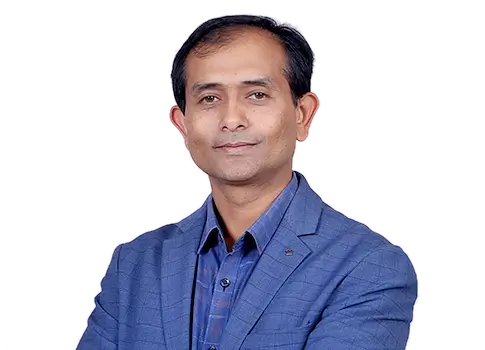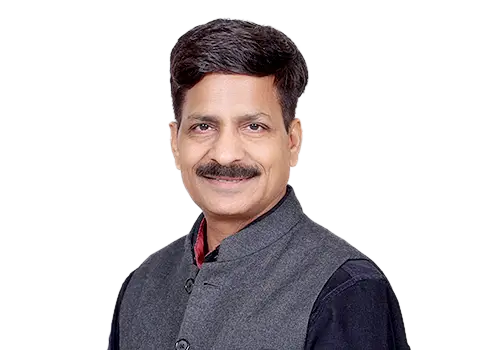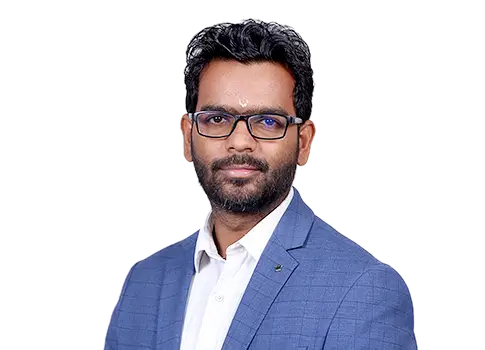- Home
- Academics
- School of Advanced Engineering
- Department of Sustainability Engineering
Department of Sustainability Engineering
About the Department
The Department of Health, Safety, & Environment (HSE) and Civil Engineering have evolved into a key sector of importance for budding engineers. It offers courses at undergraduate, postgraduate and doctorate levels. Leading the department is a specialised twenty-member faculty team with national and international experience in academics and industry. Not just faculty, the department boasts of state-of-the-art infrastructure, laboratories, software, and facilities.
The students gain invaluable industry exposure by being involved in live and sponsored projects funded by the government and through live consultancy projects. The department also provides students with international exposure through a meticulous syllabus that includes international and national student chapters, such as the American Society of Civil Engineers (ASCE), the American Society of Safety Professionals (ASSP), and the Fire & Security Association of India (FSAI). The department prepares and supports students in pursuit of certifications in professional courses like NEBOSH, IOSH, and ISO 45001 (Lead Auditor).
Through an emphasis on building entrepreneurship skills, and through interdisciplinary collaboration, the department seeks to further the professional ethics of its students, while building core competencies in civil and safety engineering and research.
Apart from this, the department is focussed on providing:
- Choice-Based Credit System and Program Electives
- Consultative Committees and Course Upgradation
- State of the Art Laboratories
- Continuous Evaluation
- Value Added Courses
- National and International Forums and Chapters (ASSP, ASCE, FSAI)
- National and International Events
- Research and Practice Informed Learning
- Collaboration and Valuable Output
- Placement Assistance
Overview
To be recognized for training students into becoming competent professionals in the areas of Health, Safety, Fire, Environment, and Civil Engineering (HSFEC) and thereby apply their skills to conduct high-quality research in the HSFEC sector.
- To provide state-of-the-art, global quality infrastructure, progressive pedagogy and an environment conducive to immersive learning, and competent faculty in the areas of Health, Safety, Fire, Environment and Civil Engineering.
- To train engineering graduates in professional conduct – ethical in their professional and personal lives.
- To create a culture wherein faculty and students are committed to keeping environment and social concerns and commitments in mind whilst applying their problem-solving skills.
- To inculcate the ability to keep societal implications in mind while dealing with professional issues.
- To foster linkages with all stakeholders for continuous improvement in academics and allied areas.
- Engineering knowledge:
Apply the knowledge of mathematics, science, engineering fundamentals, and an engineering specialization to the solution of complex engineering problems. - Problem analysis:
Identify, formulate, review research literature, and analyze complex engineering problems reaching substantiated conclusions using the first principles of mathematics, natural sciences, and engineering sciences. - Design/development of solutions:
Design solutions for complex engineering problems and design system components or processes that meet the specified needs with appropriate consideration for public health and safety and cultural, societal, and environmental considerations. - Conduct investigations of complex problems:
Use research-based knowledge and research methods, including design of experiments, analysis and interpretation of data, and synthesis of the information to provide valid conclusions. - Modern tool usage:
Create, select, and apply appropriate techniques, resources, and modern engineering and IT tools, including prediction and modelling, to complex engineering activities with an understanding of the limitations. - Engineer and society:
Apply reasoning informed by the contextual knowledge to assess societal, health, safety, legal and cultural issues and the consequent responsibilities relevant to the professional engineering practice. - Environment and sustainability:
Understand the impact of professional engineering solutions in societal and environmental contexts, demonstrate the knowledge of, and need for sustainable development. - Ethics:
Apply ethical principles and commit to professional ethics, responsibilities, and norms of the engineering practice. - Individual and Teamwork:
Function effectively as an individual, and as a member or leader in diverse teams, and in multidisciplinary settings. - Communication:
Communicate effectively on complex engineering activities with the engineering community and with society, such as, being able to comprehend and write effective reports and design documentation, make effective presentations, and give and receive clear instructions. - Project management and finance:
Demonstrate knowledge and understanding of the engineering and management principles and apply these to one’s own work, as a member and leader in a team, to manage projects and in multidisciplinary environments - Life-long learning:
Recognize the need for, and have the preparation and ability to engage in independent and life-long learning in the broadest context of technological change.
NABL-approved Labs, Fire training ground, including a smokehouse, confined space rescue model and Helicopter Rescue model, aromatic and medicinal plant facilities, advanced surveying instruments, hydraulic tilting flume, NEBOSH accredited centre.
Labs
- Advanced Fluid Mechanics Lab
- Surveying Lab
- Geotechnical Engineering Lab
- Concrete Technology Lab
- Transportation Engineering Lab
- Structural Analysis
- Industrial Hygiene Lab
- Fire Safety Engineering Lab
- Health and Safety Engineering Lab
- CAD Lab




